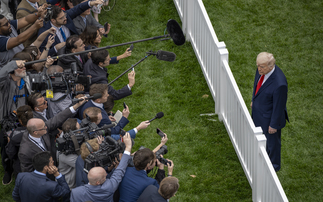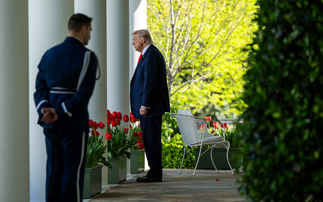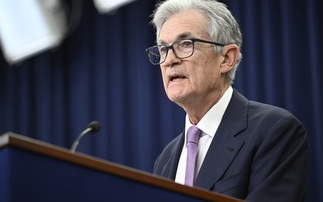In this second of a special three-part Big Question, managers tell Investment Week that investors need to keep a more vigilant and realistic eye on the economy now that Donald Trump has begun his first term as US President.
Trevor Greetham, head of multi-asset at Royal London Asset Management
History will judge performance
Equity markets have certainly been frothy lately, with our investor sentiment indicator in or close to euphoric territory since Trump won the election.
However, while it pays to be greedy when others are fearful, our analysis does not support taking a negative view simply because others are positive. Markets can melt up for months at a time when economic activity is accelerating as it is now. Against this backdrop, a correction would be a chance to buy not to sell.
Trump has certainly unleashed animal spirits with his promise of corporate tax cuts and fiscal stimulus, but it is worth remembering that a recovery was already under way. Trump comes into office in 2017 with unemployment low, the US stockmarket at a record high and interest rates starting to rise.
Obama started out in 2009 just after the Lehman failure with unemployment double its current level and stock markets on their knees. History will judge who leaves America in a greater state than that in which they found it.
Joe Little, global chief strategist, HSBC Global Asset Management
Waiting for better opportunities
Market perceptions of risk have shifted dramatically since the US election, away from a dominant psychology of deflation, toward an expectation for an economic reflation. Consequently, equities have rallied and bond yields have risen.
But this means that the market odds associated with backing equities and backing an ongoing economic recovery have worsened. Today, we measure a risk premium for US equities over treasuries of just over 3% and a risk premium on treasuries of zero. Across key global asset classes, valuation is no longer anomalous.
Global economic data shows strong momentum and the environment seems to favour equities over bonds. But there is heightened political uncertainty - the US and international policy agenda has become more unpredictable.
The critical issue for investors to think about is the combination of heightened political uncertainty and more stretched valuations. To us, this implies that the capacity of risk asset classes to absorb 'bad news' on the economy or political outlook - if, or when, it arrives - is compromised.
Tactical caution is warranted. We should be patient and wait for better opportunities.
Abi Oladimeji, chief investment officer at Thomas Miller Investment
Wary of wishful thinking
Investors' optimism appears to be predicated on the hope that while the new administration will follow through on the proposed pro-business policies, its latitude to execute the less desirable policy proposals will be constrained by a combination of political realities and the vaunted US constitutional checks and balances. This could turn out to be wishful thinking.
Trump takes the helm at a time when US growth momentum is accelerating, the labour market has tightened, inflationary pressures are building and valuations across key asset classes are stretched. To be clear, there is scope for further upside.
Carefully designed fiscal stimulus and tax reform will boost nominal growth. However, a lurch towards protectionism will weaken global trade, hinder global economic growth and curtail corporate earnings.
Likewise, any attempt to undermine the independence of the Federal Reserve will shake investor confidence.
Despite the euphoria (particularly among equity investors), at this point, the Trump effect has merely amplified the range of possible outcomes for global economic growth and financial market performance.
The lasting market implications will depend on which policies are implemented.













